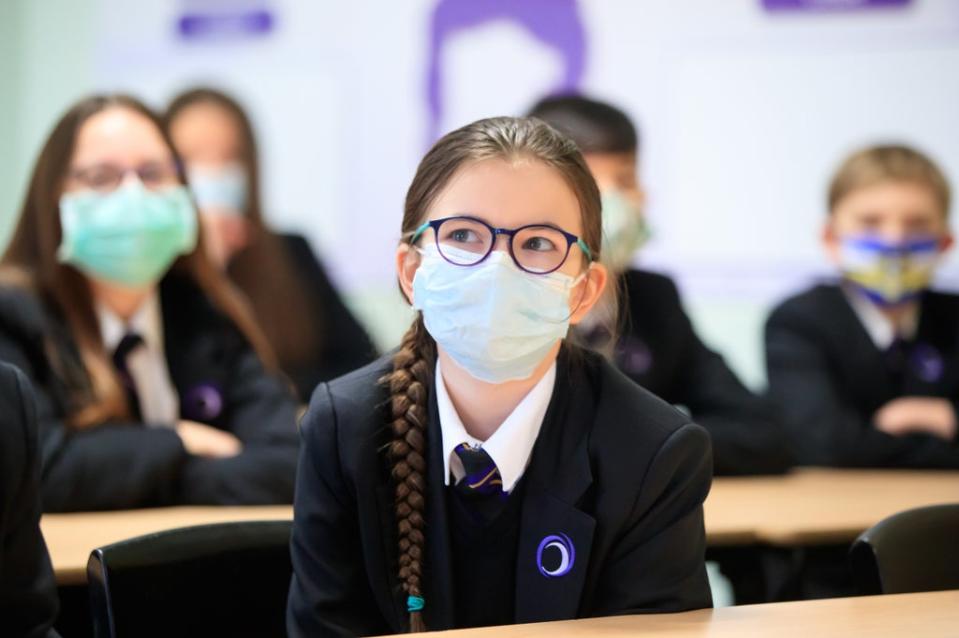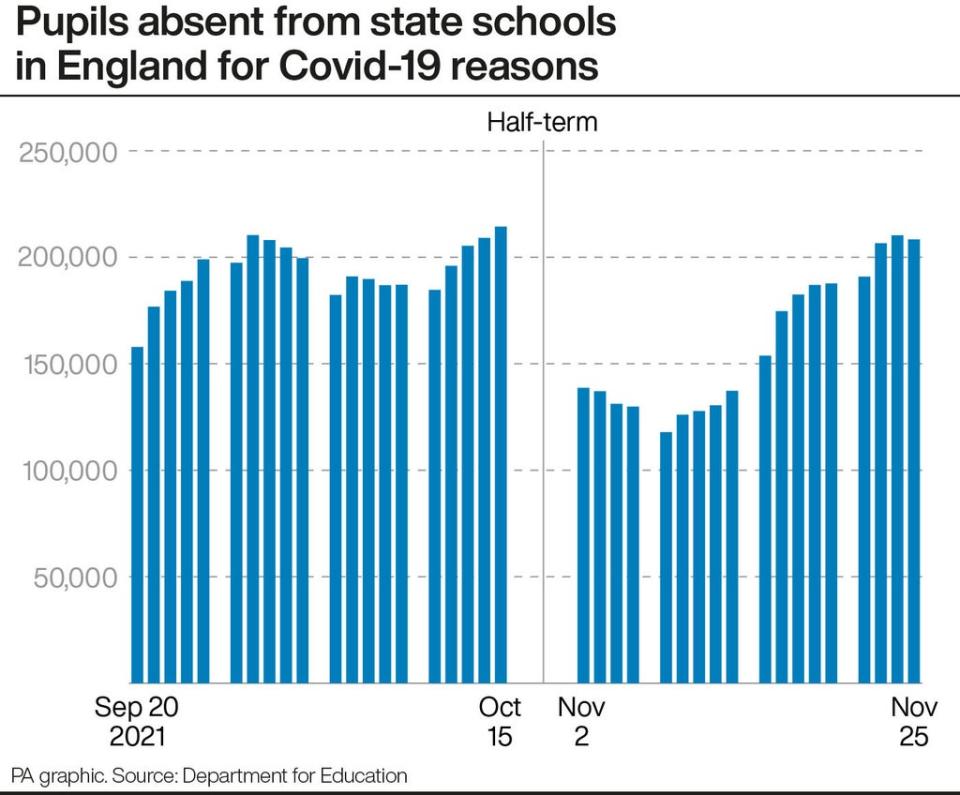Covid: Number of pupils in England off school due to virus surges

Numbers of children out of school for Covid-related reasons in England has risen over the past fortnight, figures show.
The Department for Education (DfE) estimates that 2.6% of all pupils – more than 208,000 children – were not in class for reasons connected to coronavirus on November 25.
This was up from more than 130,000 children, or 1.6% of all pupils, on November 11.
Education unions have warned that disruption to schooling is likely to worsen following the emergence of the newly-identified Omicron coronavirus variant.

Face masks are being recommended in communal areas of England’s secondary schools and colleges from this week amid concerns about the variant, but unions say tougher safety measures are needed.
Among pupils out of class for Covid-19 reasons on Thursday last week, the main reason for absence was a confirmed case of Covid-19, figures show.
Approximately 105,600 pupils in England were off for this reason, up from 66,800 on November 11, and approximately 79,300 were off with a suspected case, up from around 50,500.
About 12,200 were absent due to isolation for other reasons, up from around 9,100 on November 11.
A further 9,700 pupils were off due to attendance restrictions being in place to manage an outbreak, up from around 3,700, the Government figures show.
Overall pupil attendance has fallen from 91.5% on November 11 to 89.3% on November 25.
The emergence of the Omicron variant seems likely to make this situation worse
Geoff Barton, Association of School and College Leaders
It comes after the number of pupils off school in England due to Covid-19 fell after the October half-term break.
Geoff Barton general secretary of the Association of School and College Leaders (ASCL), said: “It is clear from these figures that the reduction in Covid-related pupil and staff absence after half-term has been short-lived and that this disruption has risen very sharply once again.”
He said: “The emergence of the Omicron variant seems likely to make this situation worse.
“We have repeatedly called for more Government support for schools and colleges in addressing these extreme pressures.
“The Government must do much more to publicly promote the importance of twice-weekly lateral flow home testing among eligible pupils, fully fund air cleaning units for schools and colleges, and properly resource the on-site testing it has asked secondary schools to provide at the start of the spring term.”
Paul Whiteman, general secretary of school leaders’ union NAHT, said: “There has been a marked increase in Covid-related absence once again. In addition to existing disruption, there is now also significant concern about the impact the new variant of Covid could have on schools.
“School leaders can’t help but remember winter term 2020 and just how bad things got. The Government was too slow to act last year – it cannot repeat those same mistakes this year.”
He added: “More needs to be done to safeguard primary and special schools – at the moment they seem to be being entirely overlooked by government. And more support needs to be given to all schools to help with ventilation, testing, close contact tracing, and staff cover.”
The National Education Union (NEU) has suggested face coverings could also be worn in secondary school and college classrooms in England to reduce the spread of coronavirus.
Kevin Courtney, joint general secretary of the NEU, said: “The autumn term was always going to be a challenge for schools and colleges, as the coronavirus continued to circulate through the community.
“The new variant threatens to undo the hard work that teachers, support staff and their leaders have done to keep education going.”
He added: “You keep children in school by reducing the rates of Covid in schools, rates which have a highly consequential impact on families and the wider community.
“The speeding up of vaccinations and boosters will certainly help, but it is clear that stronger schools guidance will make an even bigger difference in keeping case rates down. We call on the Prime Minister to follow the examples of Scotland and Wales.”
Read More
Garfield Sobers admits he will miss Queen as head of state in Barbados
How effective are face coverings at reducing the spread of Covid-19?
Boris Johnson says don’t cancel Christmas parties or nativity plays

 Yahoo Sport
Yahoo Sport 





































